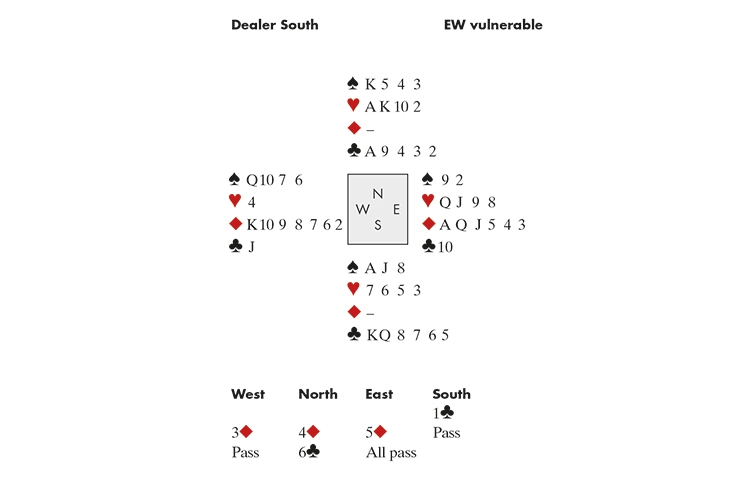I’ve always suspected that pessimists make better card players than optimists — and I recently came across the proof. A study by a group of psychologists from Central Michigan University has found that the ‘glass-half-empty’ brigade really do perform better at the gaming table; they tend to remember their losses rather than their winnings, making them less impulsive and more cautious.
It’s obvious why expecting the worst gives you a huge advantage at bridge: you take time to prepare for all eventualities. Cheery types, who trust all will be well, often play far too quickly — like half the room at a recent club duplicate did here:
West led the ♦10. Delighted to be given a ruff-and-discard, many players ruffed in dummy and threw a spade from hand. When they later discovered hearts were 4–1, they fell back on a spade finesse — one down.
The more wary players took greater care at trick 1. Anticipating a bad heart break, they discarded a heart from hand. Next they drew trumps, cashed the ♥A, came to hand with a trump and played a heart. If West followed small, a simple finesse of the ♥10 would ensure the contract; if West played an honour they could win, and if East showed out, come back to hand and lead towards the ♥10. Either way, the fourth heart would provide a discard for a spade.
When it turned out to be West who showed out, they won with the ♥K and played a small spade from dummy: whatever East played, all they had to do was cover. West now had to play a spade into declarer’s tenace, or present him with a ruff-and-discard.
Susanna Gross
Bridge | 17 May 2018

issue 19 May 2018





Comments